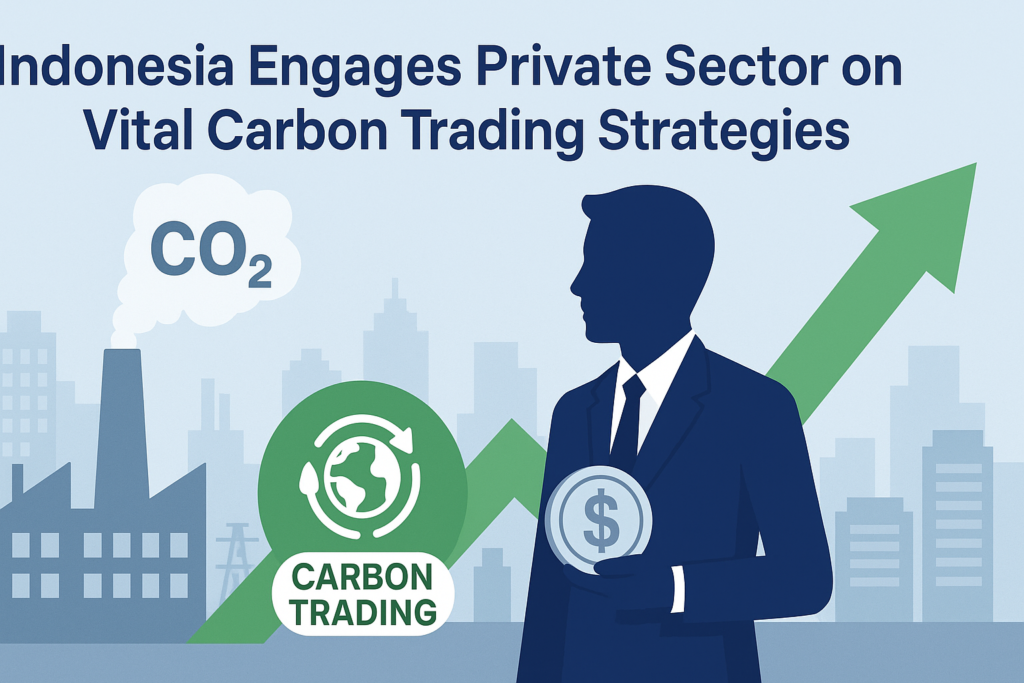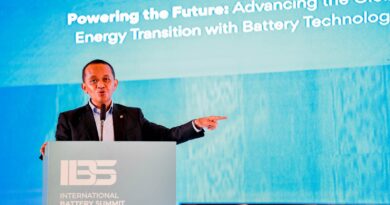Indonesia Engages Private Sector on Vital Carbon Trading Strategies
Jakarta, Indonesia – In a significant move towards achieving its ambitious Net Zero Emission target by 2060, the Ministry of Energy and Mineral Resources (ESDM), specifically its Directorate General of New, Renewable Energy, and Energy Conservation (DJEBTKE), is convening a crucial Focus Group Discussion (FGD) on Options and Strategies for Carbon Trading in the Energy Sector.
Held in collaboration with the German Government’s SETI project, this dialogue aims to gather critical insights from the private sector regarding their readiness and perspectives on implementing the Carbon Economic Value (NEK) in the energy sector.

The FGD is scheduled for Wednesday, August 13, 2025 in Jakarta.
The energy sector is identified as the primary contributor to national greenhouse gas (GHG) emissions until 2030. Therefore, effective mitigation strategies and substantial investment are paramount to reach the net zero target. The Carbon Economic Value (NEK) mechanism is seen as a strategic approach to bridge mitigation action gaps and drive the transition towards a low-carbon energy system.
A key objective of this FGD is to gather views and inputs, as well as assess the private sector’s preparedness to respond to the planned implementation of NEK. The insights gained will directly feed into the development of carbon economic policies for the energy sector. This includes exploring various carbon trading options, both market-based, such as emission trading and offsets, and non-market-based, like carbon taxes and Result-Based Payments.
The active involvement of the private sector is deemed crucial, given their significant contribution to emissions and their potential to support decarbonization efforts. Participants invited to the FGD include a wide array of prominent companies from various industries, such as PT Astra Internasional Tbk, PT Unilever Indonesia Tbk, PT Pertamina Power Indonesia Tbk, PT PLN Nusantara Power Tbk, PT Vale Indonesia Tbk, and major industry associations like the Indonesian Nickel Miners Association (APNI) and the Indonesian Coal Mining Association (APBI).
This FGD builds upon a prior discussion held on April 22, 2025, with ministries and government agencies, marking a continuation of efforts to support decarbonization and NEK implementation in the energy sector. The broader context for this initiative is Indonesia’s commitment to achieving Net Zero Emission by 2060 or sooner, as outlined in national strategic documents like the Enhanced Nationally Determined Contribution (ENDC) and the National Long-Term Development Plan (RPJPN) 2025-2045.
The implications of these discussions are far-reaching. The development of a clear carbon roadmap for the energy sector, informed by private sector input, is vital for ensuring consistency in government policy and strengthening the private sector’s contribution to reducing emissions by 358 million tons of CO₂e, as targeted in the ENDC. The regulatory framework for carbon trading in the energy sector currently focuses on the electricity subsector, regulated by ESDM Ministerial Regulation No. 16 of 2022, with a three-stage implementation scheme.
As Indonesia progresses towards its environmental goals, the outcomes of this FGD will be fundamental in shaping a cohesive and effective carbon economic policy. Businesses operating within Indonesia’s energy sector should closely monitor these developments, as their active participation and readiness will be key to the successful implementation of carbon trading mechanisms and the nation’s decarbonization journey.
